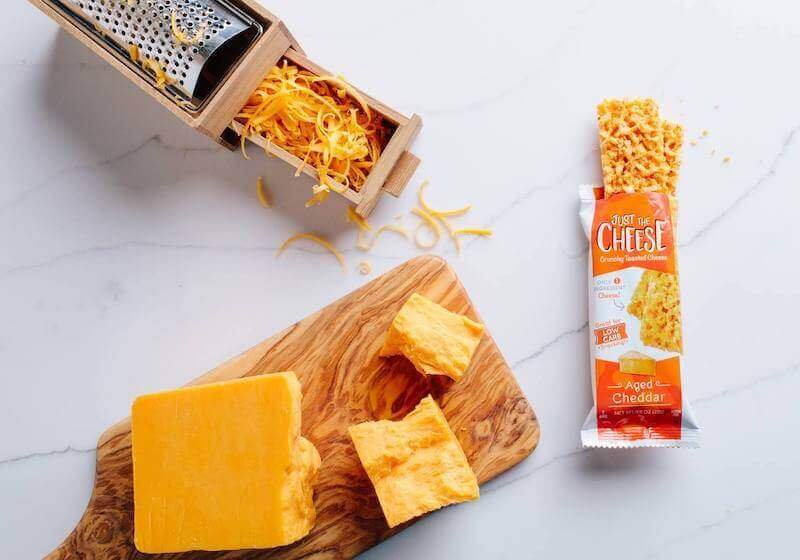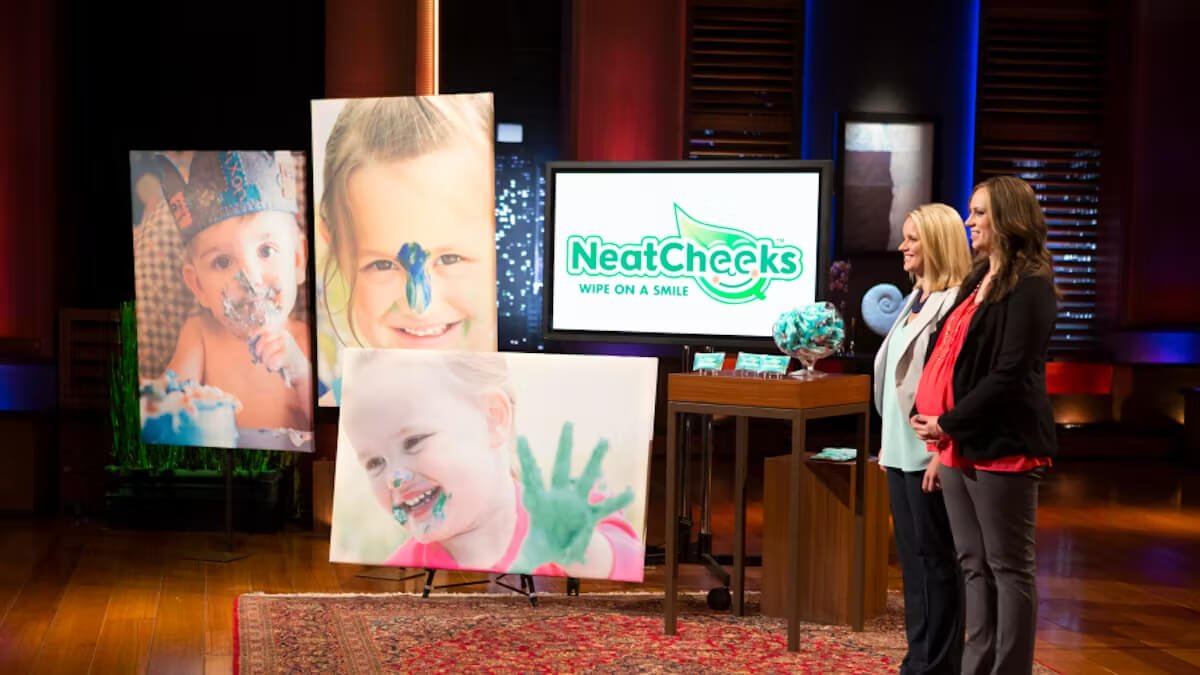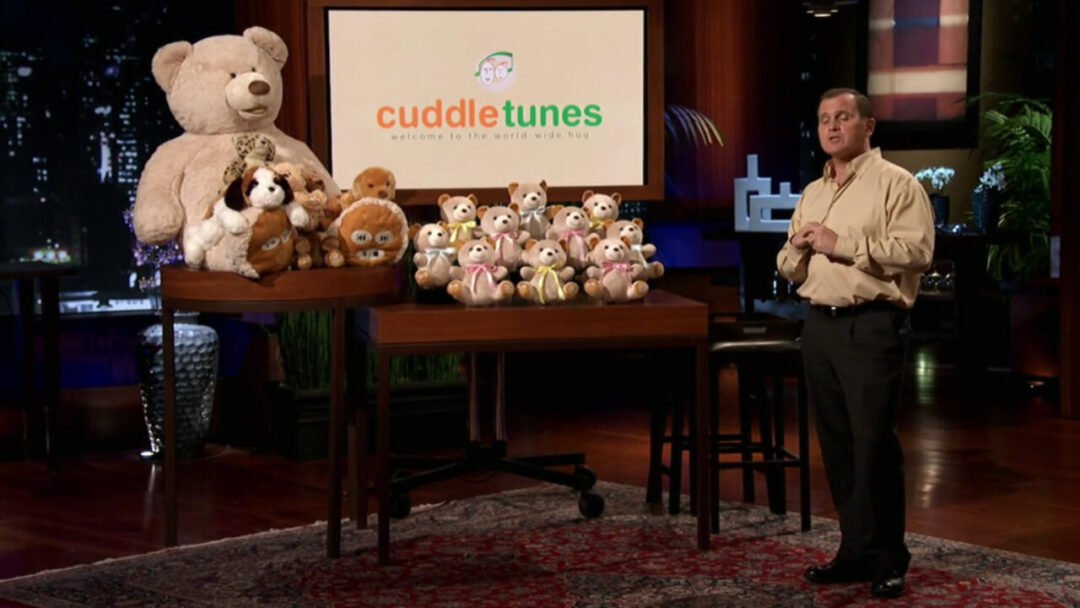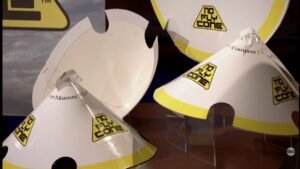Let’s kill a myth right here: snagging a Shark Tank deal isn’t always the jackpot people think. Sometimes, turning down a Shark is where the real win starts. Just the Cheese? They proved it on national TV and made money their way.
Quick Look at Just the Cheese’s Shark Tank Appearance
Picture this: Season 11, a Wisconsin founder named David Scharfman marches into the tank armed with one thing – pure, unapologetically crunchy cheese. No fillers, no fluff, just addictive cheese bars that basically taste like the best part of a grilled cheese.
The pitch had it all – strong branding, a killer story, and sharks who were both hungry and skeptical as ever. And at the center? David, holding his ground while the sharks circled.
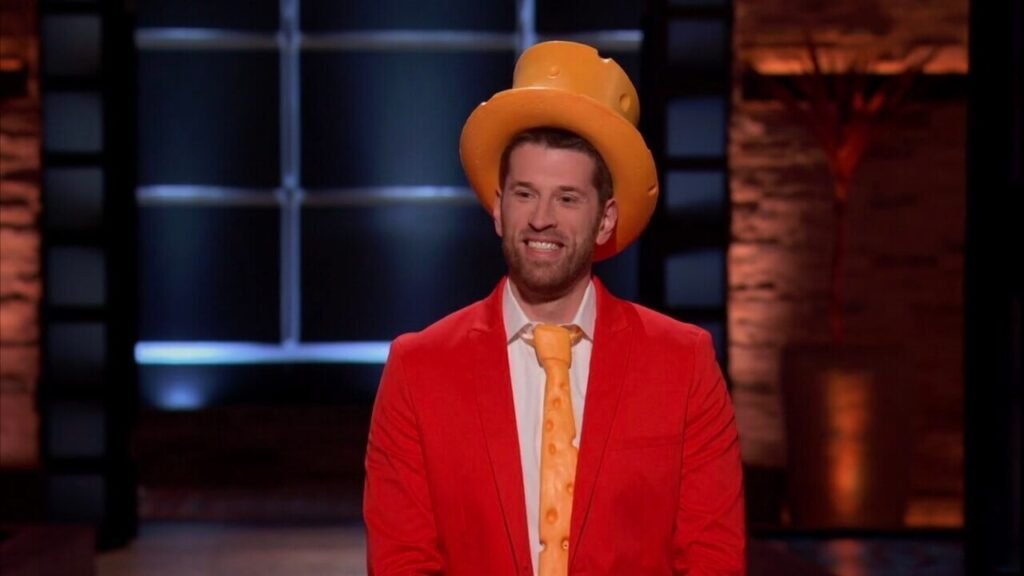
The Story Behind the Crunch
Here’s where Just the Cheese stands out. This isn’t someone trying to spin a superfood from thin air. We’re talking real Midwestern cheese legacy, born from decades in the family business.
David’s parents ran a cheese company in Wisconsin – the heartland of American dairy. When the crunchy cheese snack idea resurfaced, it wasn’t about jumping on a viral keto trend. It was about updating an old family core with smart new branding and a direct-to-consumer push.
That’s the lesson for side hustlers everywhere: sometimes your best innovation is hiding in your roots, you just have to see it with fresh eyes.
The Shark Tank Pitch Breakdown
Let’s break down the meat of the pitch. David came in asking for $500,000 in exchange for 5% – a firm $10 million dollar valuation. Ballsy, no doubt.
The numbers were strong:
- $3.5 million in sales (2018).
- Already $3.7 million by August 2019.
- Amazon was pumping out 400-700 boxes a day.
The product? Clean, low-carb, gluten-free, all-cheese – no sugar, nothing artificial, exactly what snackers hunting keto love. Lori Greiner even recognized it from ordering herself. That’s a credibility bomb most founders would kill for.
But the mood shifted quick when Kevin O’Leary sharpened his knife for the bottom line: That’s terrible margins. It cost $0.95 to make a two-pack, wholesale was $1.27, retail $1.99. Thin air between those numbers, and every shark smelled it.
Yet, here’s my take: margins can be fixed with scale. Customer loyalty can’t.
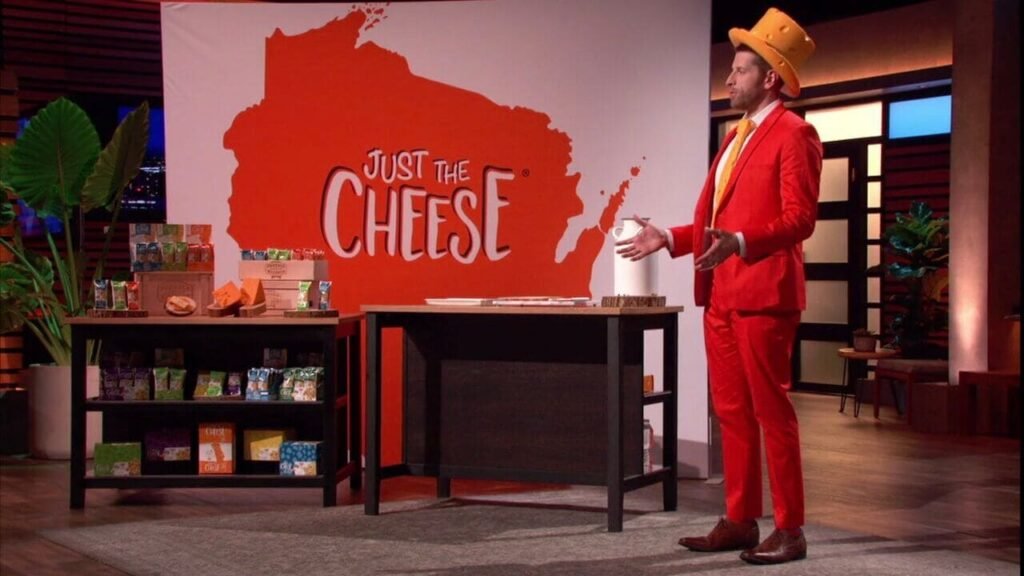
Just the Cheese Net Worth and Sales Numbers
Let’s get real on valuation versus reality. Scharfman called his shot at $10 million, and those sales gave it credibility. But when you see a fast-growing brand post $3.5M+ in sales, you still have to check the fine print.
What did the bottom line look like? Margins were under pressure, but that’s textbook for premium food startups. The sharks saw risk. David saw a path to scale and a possible fat payday down the road. As it turned out, he wasn’t wrong.
By the time of acquisition in 2022, Just the Cheese was reportedly pulling in $4 million in revenue a year. That doesn’t get you a unicorn ticket, but it’s a real business with real value for the buyers. If you want more on company net worth, SharkWorth has the freshest numbers and comparisons.
Shark Offers: Who Stepped Up, Who Walked Away
Let’s talk shark drama. Kevin O’Leary wasn’t shy—he threw down $500K for 5% equity, but with a 20-cent royalty on every bar forever. That’s Mr. Wonderful’s classic let me squeeze you move.
Lori Greiner went softer but still wanted a royalty ($0.15/bar), recouping $750K before ending the cut. That’s like a loan with a tip, not a partnership.
Mark Cuban dropped out, then swooped back: $500K for 15% equity, no royalties, no games. It was the cleanest deal – but at a much lower valuation.
This is where most founders get desperate and cave. But David Scharfman stayed cold-blooded. He countered Mark at 7.5%. Mark didn’t budge. Lots of tension, but in the end, David walked. Too much equity, too risky a royalty—he valued the grind more than the spotlight.
Here’s the truth: I’ve watched founders panic, but David understood what those deals actually meant for his take-home and control. That’s knowing your worth.
The Road After Shark Tank
This is my favorite part of the Just the Cheese story: the real game started after the tank. We’ve all seen brands fizzle after Shark Tank bumps—but Scharfman didn’t slow.
The Shark Tank appearance got Just the Cheese in the press, earned them retail shelf space, and grew their online sales. Suddenly you could find them at Walmart, Target, Amazon, and their own site, justthecheese.com.
They locked in big feature stories on the Food Network and NYT, leaned hard into the keto and gluten-free crowd, and kept the brand in the conversation when most Shark Tank alumni would be fading away.
And here’s the plot twist: in 2022, John B. Sanfilippo & Son came knocking and bought the brand. Sale amount was private, but it was a profitable exit and a nod to all the hustle – not just the Shark Tank hype.
Who Runs the Brand Now?
Just the Cheese is still going, now owned by John B. Sanfilippo & Son, Inc. If you’re nosy about whether the OG founder is still in play: nope. David Scharfman stepped out after the acquisition and now co-owns Specialty Cheese Company, where he’s back to innovating in the cheese world. That’s a classic founder move—build, sell, and get back to the season of creating.
Sanfilippo & Son? They have muscle to push distribution and boost production, making sure those cheese bars keep showing up in your aisle and your lunchbox.
That’s the modern founder’s goal: build something so sticky and scalable, someone else wants to pay to take it over.
Lessons from Just the Cheese’s Journey
Here’s where you take notes if you want your own Shark Tank moment—or actually turn your snack startup into something saleable:
- Know your walkaway number. David didn’t let nerves push him into a bad deal. Don’t let fame blind you.
- Margins matter, but so does customer love. Bad margins with buyer momentum can still win.
- Turn rejections into press. No deal? Use the air time. The traffic bump is worth gold.
- Retail wins don’t happen by accident. Position your product for big-box doors before you get the meeting.
- You don’t need a shark to scale. You need resilience and a brand story people can find and repeat.
- Be ready to fight for your terms. Sometimes, the help costs more than you expect.
I’ve seen founders chase every Shark. Smart ones keep the options—and their dignity—intact.
Final Thoughts: Success Without a Shark
So, was walking away the right call? Look at the scoreboard: Just the Cheese sold for millions, stayed profitable, and the founder got another lap at the entrepreneurial racetrack.
Too many founders think Shark Tank is the destination. Truth is, it’s just a spotlight. Real entrepreneurs—like David Scharfman—know the money’s made after the cameras shut off.
Bottom line? If you’ve got sales, a story, and guts, you can win this game on your own terms, sharks or not. Want to see more on how brands stack up post-tank? Hit up SharkWorth for deep dives on valuations and outcomes.
The cheese got crunchy, and so did the business moves. Everybody won—except the sharks.
FAQs for the Cheese-Curious
1. Is Just the Cheese still in business after Shark Tank?
Yes, it’s still sold online and in major retailers, now owned by John B. Sanfilippo & Son.
2. Who owns Just the Cheese now?
John B. Sanfilippo & Son, Inc. bought the company in 2022.
3. Did Just the Cheese actually get a deal on Shark Tank?
Nope. David Scharfman walked from every offer and kept building solo.
4. How much is Just the Cheese worth now?
Exact numbers are private, but annual sales hit $4 million at the time of acquisition. Check SharkWorth for detailed breakdowns.
5. Where can I buy Just the Cheese snacks?
You’ll find them at Walmart, Target, on Amazon, and on their own website.
6. What happened to David Scharfman after Shark Tank?
David sold Just the Cheese, then returned to co-own Specialty Cheese Company.
7. How did the sharks react to the product during the show?
They liked the taste but hated the margins. No one felt the cash flow would scale fast enough.
8. What makes Just the Cheese different from other cheese snacks?
It’s real cheese only—no fillers, zero carb, gluten-free, all crunch. Authentic roots and major snack appeal.
Want to see how other snacks or food brands fared in the tank? SharkWorth tracks every rise—and fall. Watch, learn, and maybe bring your own crunch to the next pitch room.

